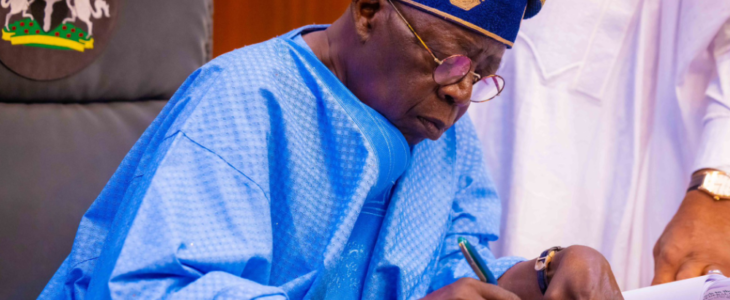
The federal government has spent a whopping N8.94 trillion on debt servicing in the first nine months of 2024, representing a significant 47% of total expenditure during this period.
The figure marks a sharp 56.8% increase compared to N5.69 trillion spent in the same period in 2023, according to data from the Central Bank of Nigeria’s (CBN) quarterly statistical bulletin.

The growing debt servicing costs highlight the mounting burden of Nigeria’s debt obligations, compounded by widening fiscal deficits.
The country’s debt-to-revenue ratio has worsened considerably, with debt servicing consuming 147% of retained revenue in 2024, a sharp rise from the 132% ratio in 2023. During this period, the government generated N6.08 trillion in revenue, but debt servicing costs have outpaced this figure, highlighting the increasing reliance on borrowing not only for day-to-day operations but also to manage existing debt.

Recurrent expenditure, which covers government operational costs, surged to N15.11 trillion in the first nine months of 2024, a 45.6% increase from N10.38 trillion in the same period of 2023. Key areas of recurrent spending saw significant hikes:
Personnel costs increased by 20%, reaching N3.59 trillion, up from N2.99 trillion. Overhead costs rose by 51.4%, amounting to N892.85 billion, compared to N589.63 billion in 2023. Transfers more than doubled, jumping by 83.8% to N1.31 trillion from N711.36 billion.
Pensions and gratuities saw a slight decline from N339.66 billion in 2023 to N336.61 billion in 2024.
Capital expenditure also saw growth, rising by 20.8% to N3.86 trillion from N3.19 trillion in 2023. However, this growth was modest compared to the surge in recurrent expenditure, revealing how rising debt servicing obligations continue to crowd out critical investments in infrastructure and long-term development.
The country’s fiscal deficit widened by 39.3%, increasing from N9.25 trillion in the first nine months of 2023 to N12.89 trillion in the same period of 2024. This growing deficit is a clear reflection of the persistent gap between government revenues and its escalating expenditures, primarily driven by mounting debt servicing costs.
Despite claims made by President Bola Tinubu during Nigeria’s 64th Independence Anniversary broadcast that his administration had reduced the debt service-to-revenue ratio from 97% to 68%, the latest data from the CBN contradicts this statement. The debt service ratio has worsened to an alarming 147% in 2024, raising concerns about Nigeria’s fiscal sustainability.
The Chief Executive Officer of The CFG Advisory, Tileriwa Adebayo, recently expressed deep concerns regarding Nigeria’s fiscal policy, particularly the increase in debt servicing from N8 trillion in 2024 to a projected N16 trillion in 2025.
He described this as a “red flag,” warning that the growing debt servicing costs are outpacing essential national spending on sectors such as defence, security, infrastructure, health, and education.
Adebayo emphasised the need for the government to restructure its financial commitments, suggesting asset sales as a potential strategy to alleviate the mounting debt burden.
He also called on the government to explore alternative financing options, beyond borrowing, to ensure Nigeria’s long-term economic stability.
The rising cost of debt servicing, coupled with the widening fiscal deficit and diminishing fiscal space, raises serious questions about Nigeria’s fiscal health and its ability to sustain growth without deep structural reforms.
Experts say the government faces an urgent challenge in balancing its financial commitments while ensuring sufficient funding for critical national development priorities.
Credit: The Sun
